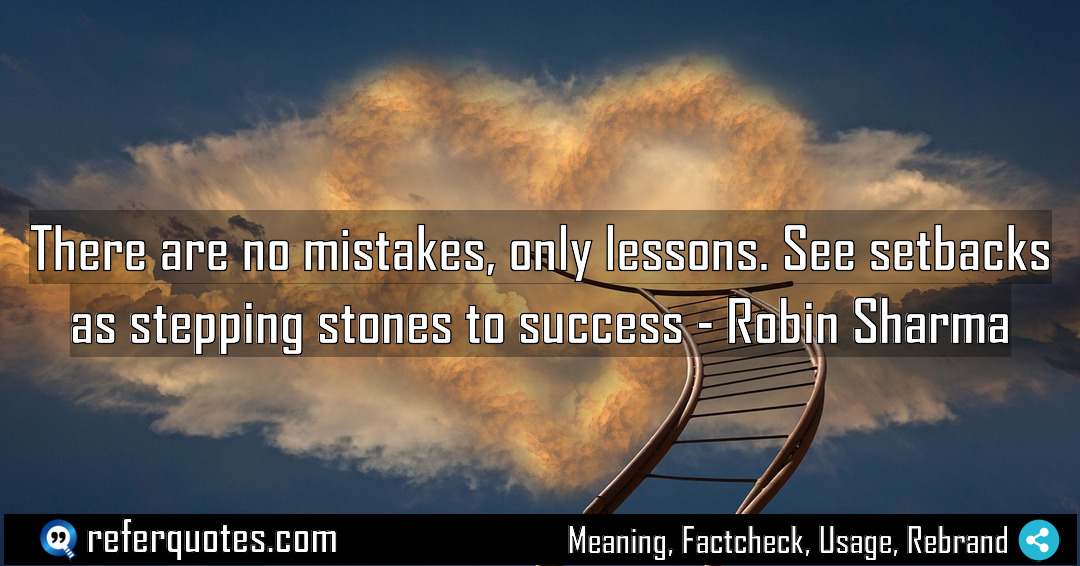You know, that idea that “There are no mistakes, only lessons” completely reframes how we handle failure. It’s not about avoiding setbacks, but using them as fuel. This mindset shift is the secret to building real, lasting resilience.
Share Image Quote:Table of Contents
Meaning
It’s a simple but profound reframe: stop seeing failures as dead ends and start viewing them as essential data points on your path to growth.
Explanation
Look, I’ve worked with this concept for years, and here’s the real magic of it. It’s not some fluffy, positive-thinking mantra. It’s a highly practical tool for resilience. When you truly internalize that a “mistake” is just a lesson you haven’t learned from yet, the fear of trying new things just… evaporates. You start to see every single outcome—good, bad, or ugly—as feedback. And feedback is what allows you to course-correct, to iterate, to get smarter and stronger. It transforms you from someone who is trying not to fail into someone who is actively learning how to win.
Quote Summary
| Context | Attributes |
|---|---|
| Original Language | English (4111) |
| Category | Success (384) |
| Topics | failure (59), growth (454), learning (211) |
| Literary Style | didactic (393) |
| Emotion / Mood | hopeful (376) |
| Overall Quote Score | 86 (314) |
Origin & Factcheck
This wisdom comes straight from Robin Sharma’s 1999 bestseller, “The Monk Who Sold His Ferrari.” It’s a fictional tale, but the philosophy is very real. You’ll sometimes see similar sentiments floating around misattributed to Buddha or other spiritual figures, but this specific phrasing is Sharma’s.
Attribution Summary
| Context | Attributes |
|---|---|
| Author | Robin Sharma (51) |
| Source Type | Book (4674) |
| Source/Book Name | The Monk Who Sold His Ferrari (51) |
| Origin Timeperiod | Contemporary (1815) |
| Original Language | English (4111) |
| Authenticity | Verified (4674) |
Author Bio
Robin Sharma built a second career from the courtroom to the bookshelf, inspiring millions with practical ideas on leadership and personal mastery. After leaving law, he self-published The Monk Who Sold His Ferrari, which became a global sensation and launched a prolific writing and speaking journey. The Robin Sharma book list features titles like Who Will Cry When You Die?, The Leader Who Had No Title, The 5AM Club, and The Everyday Hero Manifesto. Today he mentors top performers and organizations, sharing tools for deep work, discipline, and meaningful impact.
| Official Website | Facebook | X| Instagram | YouTube
Where is this quotation located?
| Quotation | There are no mistakes, only lessons. See setbacks as stepping stones to success |
| Book Details | Publication Year: 1997; ISBN: 9780062515674; Latest Edition: HarperSanFrancisco Edition (2011); Number of Pages: 198 |
| Where is it? | Chapter: Lessons from Failure, Approximate page from 2011 edition: 101 |
